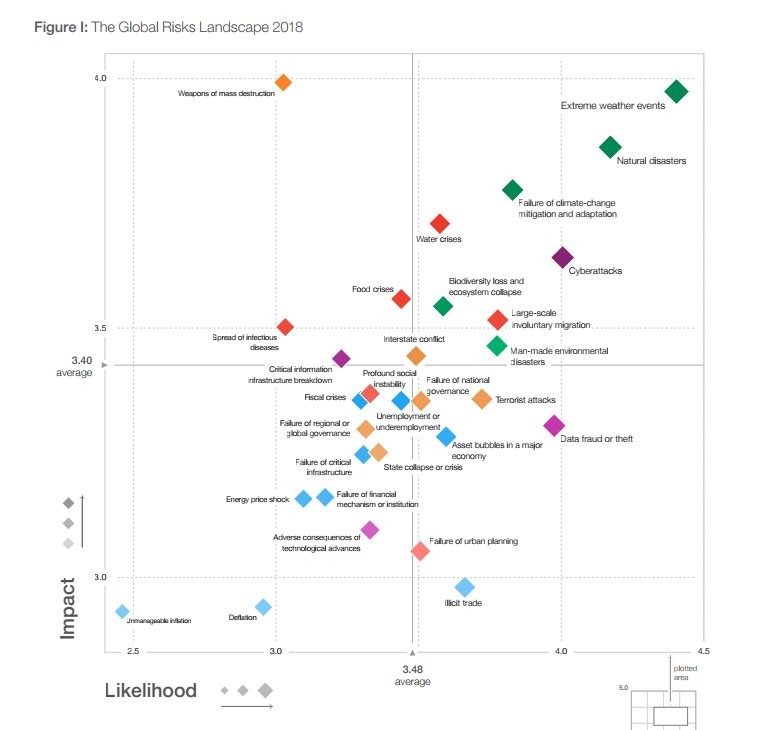World Economic Forum: Difference between revisions
Jump to navigation
Jump to search
Siterunner (talk | contribs) No edit summary |
Siterunner (talk | contribs) No edit summary |
||
| Line 2: | Line 2: | ||
<big>'''''Overheard at Davos in 2018:'''''</big> | <big>'''''Overheard at Davos in 2018:'''''</big> | ||
Klaus Schwab, founder and executive chairman of the World Economic Forum, introduced the 360 focus of the gathering: ''“No individual alone can solve the issues on the global agenda”'' yet the world is at ''"an inflection point where"'' there is '' “real danger of a collapse of our global systems”.'' | |||
WEC organizers set out ''“multi-stakeholder”'' solutions and the conference centered on the generally agreed concept that global problems are best solved by countries working together. | |||
Revision as of 18:57, 28 January 2018
Overheard at Davos in 2018:
Klaus Schwab, founder and executive chairman of the World Economic Forum, introduced the 360 focus of the gathering: “No individual alone can solve the issues on the global agenda” yet the world is at "an inflection point where" there is “real danger of a collapse of our global systems”.
WEC organizers set out “multi-stakeholder” solutions and the conference centered on the generally agreed concept that global problems are best solved by countries working together.
- Anand Mahindra: "Climate change is the... biggest financial and business opportunity."
- "Why on earth are we talking about this as a compulsion or a burden?
- "Everything our group of companies has done to try and improve energy (consumption) or to reduce greenhouse gas emissions has given us a return."
- "We have to dispel the idea that there is a trade-off (for business)."
- Philipp Hildebrand, vice chairman of BlackRock, the world's biggest asset manager, told the WEF a new generation is ramping up pressure on asset managers to put money into investments with a strong environmental agenda and to push companies to play a bigger role in addressing climate change.
- "People are beginning to realise this problem is too big for governments alone to deal with.... Essentially corporations have to become part of this solution."
- "We're about to see the largest wealth transfer in the history of humanity. You have a new generation of clients... who simply care more about these issues."
- Insurance companies have a vested interest in switching their money away from fossil fuels, Thomas Buberl, chief executive of insurance company AXA SA, told Thursday's discussion on stepping up climate action.
- Investing less in coal "pays out significantly" in cutting the number of insurance claims and in being able to continue providing insurance, he explained.
- Jay Inslee, governor of Washington state, continued explaining challenge and opportunities.
- "We have to decarbonise the world's economy at a pace that cannot wait for the great inventions that might otherwise occur over a century," he said, adding they need to occur in "over a decade or so".
- Former US Vice President Al Gore summed up the politics in play.
- Fossil fuel subsidies total some $US 5.3 trillion a year, he pointed out, and in many jurisdictions lobbyists for the industry have "gotten lawmakers to put up obstacles to the installation of solar and wind".
- "We need to convince every country in the world" to increase their commitments to cut emissions and "to save humanity's future".
.
